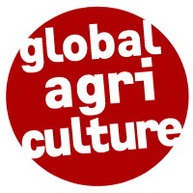 “Business as usual is not an option” was the wake-up call of the International Assessment of Agricultural Knowledge, Science and Technology for Development (IAASTD), which was commissioned by the United Nations and the World Bank. This ground-breaking report, compiled by over 400 scientists in a four year-process, calls for a paradigm shift in global agricultural policies, research and development.
“Business as usual is not an option” was the wake-up call of the International Assessment of Agricultural Knowledge, Science and Technology for Development (IAASTD), which was commissioned by the United Nations and the World Bank. This ground-breaking report, compiled by over 400 scientists in a four year-process, calls for a paradigm shift in global agricultural policies, research and development.
Some of the IAASTD report’s key messages were revolutionary when first published in 2009 but have since become mainstream. While many institutions today call for a paradigm shift in agriculture, the quest on how to define and achieve sustainability in our agri-food systems has just begun and remains highly controversial.
The new www.globalagriculture.org website, launched by Foundation on Future Farming and Biovision to coincide with the United Nations Conference on Sustainable Development (Rio+20), makes the IAASTD’s findings available by topics and offers updated figures, background information, further reading and news. Users can conveniently browse and search the 2,000 pages of the original reports. Scientific and institutional follow-up reports are presented, including new topics such as land-grabbing and food speculation.
“Agriculture must be at the core of all discussions about sustainability in Rio” said Hans Herren, President of Biovision and the Millennium Institute, who co-chaired the IAASTD and co-ordinated the chapter on agriculture in UNEP’s recent Green Economy Report. This request is supported by the US-based Nourish9billion initiative and the global NGO coalition “Time to act”, which consists of more than 170 organisations. Herren goes on to call on the heads of states gathered at Rio to support small-scale sustainable agriculture and food production based on agroecology. To achieve sustainability, a transformation of the current industrial agriculture system is needed.
On the site a special page reflects the discussion on food and agriculture in the run-up to Rio+20. The conference also provides the opportunity to set the course for a permanent and continued assessment of agricultural knowledge, science and technology for development.

